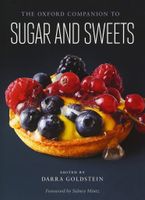Advertisement
Islam
Published 2015
Dates and honey have been valuable commodities since antiquity, not just as sweet foodstuffs but also for their medicinal properties. However, their high standing among Arabs was firmly established with the advent of Islam. The date palm was repeatedly mentioned in the holy Qur’ān as God’s gift to His believers, and in the verses on the birth of Jesus, Mary was asked to shake the date palm in order to feed herself with the dates falling from the tree. The Prophet himself endorsed the date by saying that seven dates a day will keep poison and witchcraft away. His favorite was the Medina date variety ‘ajwa, described as the food of heaven and used to help wean children. See dates. Following the tradition of the Prophet, in some Muslim countries today, newborns are given a taste of dates or honey, in a ceremony called taḥnīk, and lactating mothers are fed a lot of dates. Modern medicine has shown that dates do indeed activate milk hormones and that they act as tonic for uterine muscles, which stimulate delivery contractions.


